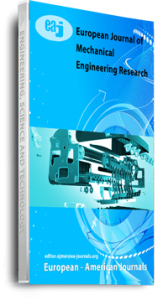The prevalence of communicable diseases such as cholera, dysentery, and COVID-19 underscores the urgent need for accessible hand hygiene solutions, particularly in low-resource settings. In response, the Lagos State Government commissioned Lagos State Polytechnic to design and fabricate a sustainable, non-electric handwashing system. This report presents a foot pedal-operated unit with independent mechanical actuation for water and soap dispensing, designed for environments lacking reliable plumbing or electricity. The system uses foot pedals, grooved pulleys, tension cords, and springs to ensure effective mechanical operation. It is constructed from mild steel, aluminium, HDPE, and stainless steel to enhance durability and hygiene. Testing confirmed high reliability, ergonomic ease of use, and structural integrity, achieving a mechanical-to-fluid dispensing efficiency of 81.4%, indicating minimal energy loss. Following successful prototyping, the system was mass-produced and deployed to schools, healthcare centres, and other public institutions. This scalable and replicable solution supports long-term public health and hygiene infrastructure in underserved communities.
Keywords: Handwashing, control valve, foot pedal, gravity-fed system, mechanical design, soap dispenser

